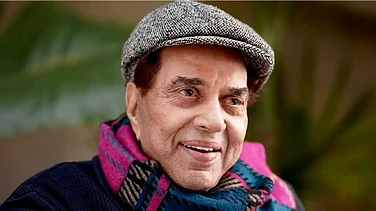It began with Uri - a smart, crafty work of fiction based on a military strike which some in the opposition continue to question till now. But for the gullible Indian soul, ever hungrier for a notional sense of national egotism, two negatives made it positive. That is, a work of fiction gave them tell-tale proof that something called a ‘surgical strike’ was an unquestionable actuality, and Uri (2019), as if it were a documentary, attested to it.
Uri did evoke the disturbing idea that Indian cinema had entered an era of pernicious propaganda, especially because the film had managed to hide its intent under the cloak of an arresting, realist narrative. In some ways, it carried the legacy of Hollywood’s wartime cinema of the 1940s, which had its genealogy in none other than Hollywood’s early icon WG Griffith. Long, long ago Griffith had understood that cinema’s congenital synaesthesia, its natural affinity for spectacle and its unfiltered (and apparent) automatism had the ability, unlike anything in human culture, to make any claim, any fiction, any lore convincing. Any.
Following Griffith, between 1920s and 1930s, Fritz Lang, Sergei Eisenstein, Abel Gance and Leni Riefenstahl, among several others, mined this to spectacular effect (pun intended), but also left behind monumental cinematic masterpieces. Hollywood’s wartime cinema was certainly mediocre compared to them but could successfully carry out the hidden mission of proliferating a national sentiment without overt recourse to full-throttle jingoism. So did Uri. We must hence not mix Uri with the loud and sentimental patriotism of a Border (1997) or the tubewell-totting rage of a Gadar (2001). In spite of the usual outbursts, both the films (along with several others before them) belong to an older temperament of Indian cinema, where the need for violence is ultimately eschewed in favour of romance and reconciliation. Uri did not have any of that purpose. It was all about triumph by any means, and hence tailor-made for the post-truth era.
But the anxiety that Uri caused did not last long. It was quickly revealed that using art as devious but sophisticated propaganda is something unreachable for the right-wing, beyond a point. This was because, in India’s popular imagination, refinement is not the usual goal, but loudness is, tackiness is, and bombast is. And in the right-wing arsenal, that is only what they had. Hence, we had a line of films that went overboard - The Accidental Prime Minister (2019), Kesari (2019), Yatra (2019). The Files Franchise, which began with Tashkent Files (2019) was more successful in terms of zeroing into a plot that mined, with unsubstantiated claim, an under-recognised historical event with the singular aim to demonise the Congress. The Franchise got a shot in the arm with Kashmir Files (2022), which mined the misery of Kashmiri Pundits using the handpicked ingredient of Islamophobia. The claim of the makers that the film deserves recognition as art was short-lived, for an equally hideous, if less repugnant right-wing vehicle RRR, ran away with the same. But that has not deterred the File Franchisers to announce a few more Files.
Between Uri and Kashmir Files, one thing was clear: the right-wing ecosystem had tasted blood about how to make cinematic material out of WhatsApp forwards. Unlike Uri, the idea is no more to hide the intent but to hunt with the wolves straightaway. Naturally, it got progressively and hilariously daring. And for that history was too populated a turf. Why not try a myth instead?
The two-part Bahubali (2015 & 2017) made a case for bling trumps all. Last year’s Ram Setu (2022) tried to take the contemporary way of justifying a myth. It was like the new Parliament building, where ‘Akhand Bharat’ is no anymore a loose drivel for abstract gibberish but has taken the form of art. Then came Adipurush (2023), which did not bother to take even that route. It went straight into extolling what the half-naked sadhus and mahants proclaim in public - that all history and all life begins with the mythical figure of Ram. Period. It even planned to keep a seat reserved for the Hanuman in each show. Why Hanuman would need such repeat viewings is not clear but what is known is that such obsequious stupidity did have takers. Then the fun began. To do one-up on Bahubali, the makers of Adipurush went haywire- they took the bare outline of Ramayana and made it mingle with superhero films, while also letting it flirt with monster movies while having a fling with the gangster genre. The result is an eye-popping, outrageous, impossible-to-watch profanity - a parade of kinky kitsch, boorish bling and oversized cartoons from those who print wheeler chapbooks about mofussil sex scandals. Nothing else explains the nature of delirious dyspepsia that the film has managed to become.
What is fascinating is that unlike before, the film has left the liberals laughing and the right-wing fuming. Some of them have even seen a foreign conspiracy to malign Hinduism in a film that had the endorsement of right-wing’s prominent poster boys. Most others of the saffron variety are livid too. Bare-knuckle propaganda for Hindutva legitimacy has now come home to roost, proving that after a point, even pots of money and an oversized pageantry of chest-thumping, masculine trapeze does not cut ice.
This reminds one of Ouroboros, the self-consuming serpent of Egypto-Hellenic mythology. The decimation of Ramayana, the much-loved popular tale, and the only literary asset they have claimed ownership of, has got the right wing into a war with themselves. May they take one more step and eat themselves too. Someone can then mine their misery and make a film. We can call it the Ramayana Files.
(Sayandeb Chowdhury is an academic and writer)



















